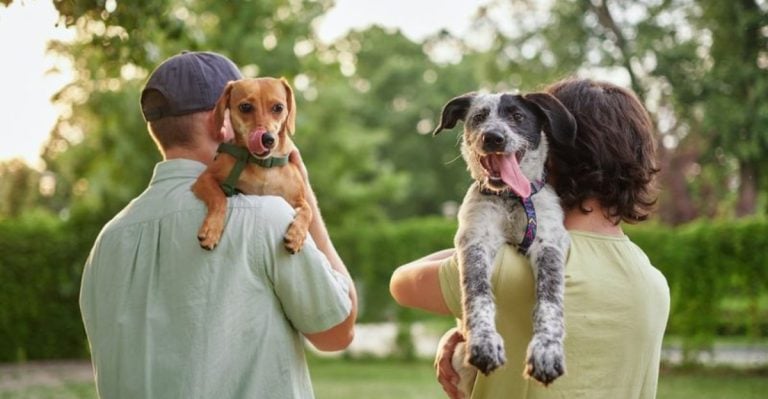15 Reasons Dog Adoptions Don’t Always Work Out

While every wagging tail deserves a forever home, some adoptions don’t last due to practical challenges that go beyond emotion. Some dogs go back when life shifts in ways their owners didn’t expect. Let’s explore the key reasons adoptions fail and how you can avoid potential heartbreak for both you and the dog.
Behavioral Challenges Overwhelm New Owners

Growling during meals and lunging at strangers can quickly become overwhelming. Many adopted dogs are returned due to behavioral issues. Without early intervention or professional help, fear-based reactions can escalate. A loving heart is important, but it’s also essential to have the right tools and support to guide them.
Unrealistic Expectations Lead To Disappointment

Adopters often imagine a movie moment—when the dog leaps happily into their arms. The reality? The adjustment can take weeks. One-third of adopters expect an instant connection, making it easy to feel let down if the dog barks incessantly, shies away, or doesn’t respond to your cues.
Time Commitments Prove More Than Anticipated

Once leash time replaces your morning coffee, your dog becomes your new alarm clock. Dogs require 1–2 hours of daily engagement, with high-energy breeds needing even more. Families with busy schedules often find that affection alone isn’t enough to prevent destructive chewing or constant whining.
Financial Strain Becomes Overbearing

Vet visits typically cost $300–$400 a year, with emergencies often exceeding $1,000. The expenses add up quickly when you factor in monthly food and grooming. Even the most well-meaning adopters can find themselves torn between their budget and their dog’s ongoing care.
Health Issues Of The Dog Surface Post-Adoption

Coughing after the first week? It could be kennel cough. Joint stiffness? Possibly early hip dysplasia. Some conditions aren’t noticeable during initial check-ups, and the dog might face chronic diagnoses, like diabetes or epilepsy, within weeks. Medical complexities can quickly turn your love for the dog into a balancing act, especially without easy access to a vet.
Housing Restrictions Force Difficult Decisions

No matter how strong your bond is, breed bans and pet fees can still create barriers. In over 75 U.S. cities, housing codes restrict pet ownership based on size or breed. Lease agreements don’t bend for love, and a landlord change or unexpected move can quickly uproot your dog’s place in your home.
Family Dynamics Shift Unexpectedly

Major life changes, like divorce or chronic illness, can throw off daily routines and introduce unpredictability. Dogs thrive on routine, and they depend on a consistent environment for emotional health. Sudden shifts in the household can lead to increased stress, anxiety, and behavioral issues as they try to adapt.
Allergies Emerge Within The Household

Allergies can show up quickly, usually within a few days, with symptoms like sneezing, rashes, and more. Many adults struggle with pet-related allergies, and sometimes a beloved dog becomes the source of discomfort that no amount of affection can fix.
Incompatibility With Other Pets Causes Conflict

Growling and snapped leashes during walks with other pets can quickly escalate tension, making handling much harder. Shelters often see returns due to aggression toward other pets in the home. If harmony can’t be restored through training, safety must come first—love shouldn’t put pets at risk of injury or lifelong stress.
Insufficient Training Resources Hinder Progress

Commands like “leave it” and “stay” require structure, repetition, and skill to master. Training classes, typically costing $100–$300, aren’t always within reach for every family. DIY methods often fall short, especially for trauma-affected dogs, and when frustration builds, progress stalls. Without the right support, commitment can lead to burnout and, ultimately, surrender.
Owner’s Health Declines, Limiting Care Ability

Unexpected surgery or chronic illness can make daily care feel overwhelming, as tasks like feeding and grooming become difficult with declining mobility. Some owners try everything before facing the hard truth: keeping the dog can compromise both lives. In some cases, health challenges can overpower even the deepest love.
Mismatched Energy Levels Create Strain

Active breeds like the Border Collie thrive on constant stimulation, but a quiet household doesn’t offer that. This mismatch leads to frustration and unmet needs. Energy levels matter more than affection when it comes to compatibility. High-energy dogs without an outlet often channel their restlessness into destructive behavior.
Legal Liabilities Arise From Dog’s Behavior

One bite is all it takes for things to escalate. A concerned parent voices their worries, and suddenly, you’re facing unexpected rules and restrictions. Dogs with behavioral incidents quickly face serious consequences, no matter the owner’s intent. In these situations, no amount of affection can override the strict liability laws in place.
Emotional Readiness Falls Short Post-Adoption

Sometimes, what feels like readiness can actually be loneliness or a sense of loss in disguise. Real commitment requires both mental space and sacrifice. Once the excitement fades, the daily messes and responsibilities remain, and if you’re not fully prepared, a return may become the reality.
Unanticipated Shedding Or Grooming Needs Surprise Owners

A sleek black couch and a white Husky? Not the best combo. Breeds like Poodles or Shih Tzus need regular trims, not just the occasional brush. Without proper preparation, a dog’s grooming and messes can quickly become overwhelming.






